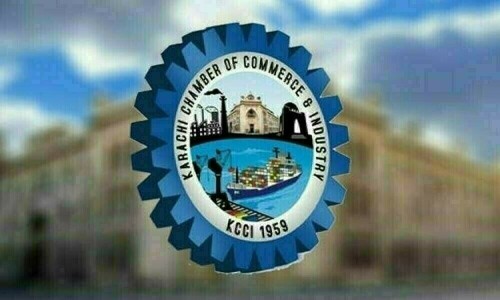Customs and KCCI Collaborate to Bolster Pakistan’s Exports
KARACHI: In a concerted effort to reinforce Pakistan’s export capabilities, the Chief Collector of Customs (Export), Mohammad Sadiq, has reiterated the commitment of customs authorities to work in tandem with the Karachi Chamber of Commerce and Industry (KCCI). The goal is to foster streamlined trade operations.
During a meeting at KCCI, Chief Collector Sadiq highlighted the enduring and respectful bond between the customs department and KCCI. He underscored the significance of shared responsibility in tackling the hurdles encountered by exporters.
“Our discussions are centered on collaborative improvement, not assigning blame,” he stated. “Exports are vital to our economy, and we have consistently worked to simplify processes for exporters in Karachi and across the country.”
The session saw the participation of Collector of Customs (Export) Irfan Javed, President KCCI Muhammad Jawed Bilwani, Senior Vice President Zia ul Arfeen, Vice President Faisal Khalil Ahmed, former President Iftikhar Ahmed Sheikh, and members of the KCCI Managing Committee.
Enhanced Support for Exporters
Collector Customs (Export) Irfan Javed announced the establishment of a 24-hour help desk at the Customs Headquarters to offer immediate assistance to exporters. Contact information is readily available, and a dedicated WhatsApp group, including the Chief Collector, senior officials, and exporters, ensures timely issue resolution.
“We are dedicated to addressing concerns swiftly, including coordinating with Drug Enforcement agencies to reduce unnecessary inspections,” he added.
Irfan Javed also clarified that 90 percent of rebate payments are processed through the State Bank of Pakistan, with final approvals granted by the federal government.
KCCI’s Perspective on Export-Led Growth
President KCCI Jawed Bilwani stressed that while remittances are valuable, a resilient economy depends on an export-focused strategy to achieve a favorable trade balance. “Exporters deserve full support, and unnecessary obstacles or harassment must be eliminated. Simultaneously, individuals involved in malpractice must be identified and held accountable to safeguard Pakistan’s global reputation.”
President KCCI also highlighted key operational challenges faced by exporters, such as excessive per-day charges, delays in examination procedures, and high logistics expenses, particularly for perishable goods.
He advocated for better coordination between customs and cargo handlers to expedite clearances and protect product quality. He lauded the creation of a quick-response WhatsApp group linking focal persons from each association, calling it a “game-changer” for resolving exporters’ issues in real-time.
Bilwani mentioned incidents where export consignments, once cleared, faced unexpected inspections, causing delays and confusion. He urged an end to this practice, asserting that post-clearance inspections undermine exporters’ confidence and shipment schedules.
Sector-Specific Concerns
Bilwani addressed concerns in the iron and steel export sector, which, despite contributing $1.5 billion in exports, is excluded from the Export Facilitation Scheme (EFS) due to allegations of negative value addition. While acknowledging the need to address malpractice, he cautioned against penalizing the entire sector for the actions of a few.
“Legitimate exporters should not suffer. Accountability must be precise and fair.”
Regarding the textile sector, which accounts for over 60% of Pakistan’s exports, Jawed Bilwani noted that liquidity challenges have historically hindered growth.
The EFS has largely alleviated these issues by enhancing access to funds and increasing order volumes. However, the processing of refunds still requires acceleration, as delays persist.
He also mentioned that multiple trade sectors, including leather, surgical goods, and sports goods, have requested an extension of the export period to 18 months under the EFS, a proposal currently under policy-level review. Bilwani encouraged exporters to formally support this initiative through written representations.
In conclusion, both parties reaffirmed their dedication to strengthening Pakistan’s export ecosystem through enhanced collaboration, efficient facilitation, transparency, and collective problem-solving.



Comments (0)
No comments yet. Be the first to comment!
Leave a Comment